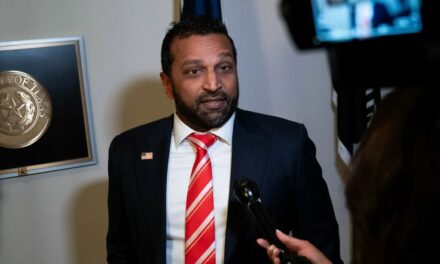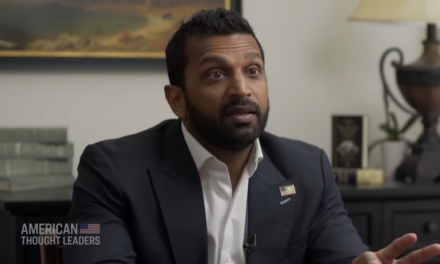We support our Publishers and Content Creators. You can view this story on their website by CLICKING HERE.
The Federal Reserve is signaling slower rate cuts, warning of upside inflation risks, and raising the 2025 inflation forecast in new projections.
Federal Reserve officials have revised their inflation expectations for 2025 sharply higher while risks to the inflationary outlook shifted from “balanced” to the “upside” and markets have lowered their projections for the pace of future rate cuts amid fears that price pressures will stay higher for longer.
In a further signal of possible trouble ahead for the inflationary outlook, risks to both PCE and core PCE inflation have flipped to the upside. In the latest summary of economic projections, Fed officials shifted their assessment of inflation risk from September’s “broadly balanced” to “weighted to upside,” with the level of uncertainty around the inflationary outlook also moving higher.
Fed officials also expect to slow the pace of rate cuts in light of higher inflation expectations and upside risk shift, according to the updated projections. In September, policymakers expected to cut to a median rate of 3.4 percent in 2025 and 3.4 percent in 2026. This has now jumped higher to 3.9 percent next year and 3.4 percent the following year.
“Higher for longer is the mantra headed into 2025,“ Bankrate Chief Financial Analyst Greg McBride told The Epoch Times. ”The Fed’s quarterly projections indicate a common expectation of just two interest rate cuts for next year, a change of thinking from September when the median expectation was four rate cuts.”
Powell reaffirmed the Fed’s commitment to bringing inflation down to around the 2 percent mark and reiterated policymakers’ focus on incoming data to guide future monetary policy decisions. He also declined to say that the central bank wouldn’t raise interest rates if inflation were to jump back up.
“You don’t rule things completely in or out in this world,” he said.
The Fed’s updated projections, which show fewer rate cuts than markets expected, fueled a broad selloff on Wall Street, with the Dow Jones closing the day’s session 1,123 points down.
Speaking at Wednesday’s press conference, Powell said the Fed has made “a great deal of progress” in getting inflation closer to target but that Americans continue to experience the strain of elevated inflationary pressures.
“There’s tremendous pain in that burst of inflation that was very global—this was everywhere in all advanced economies at the same time,” Powell said. “Now, inflation itself is way down, but people are still feeling high prices.”
The Fed chief said that the “best we can do” for American households is to get inflation back down to target to make sure that wages are rising faster than prices.
“That’s what will restore people’s good feeling about the economy,“ he said. ”That’s what it will take, and that’s what we’re aiming for.”
Fed officials’ decision to recalibrate their interest rate projections, along with their view that inflation risks have moved to the upside, comes at a time of economic uncertainty. Even though recent economic indicators suggest economic activity has been expanding at a solid pace, the labor market has shown signs of softening and the unemployment rate has moved up.

 Conservative
Conservative  Search
Search Trending
Trending Current News
Current News 






